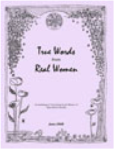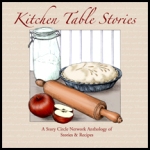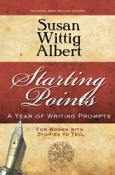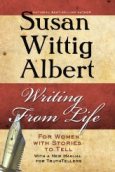Matilda Butler, ABC’s of Writing, #13
Today is the vernal equinox, the official start of spring. According to my research, spring actually began at 11:21 pm last night, but I’ll settle for March 21. At least as a child, I always thought spring arrived on this day so it is comforting to accept that same date as an adult. After all, there is a limit to precision since then I’d need to adjust for the hemisphere I am in, the time zone I’m in, and whether I’m using the astronomical or meteorological definition of spring.
But of course the word, and precision in word choice, is the domain of writers. Over at Women’s Memoirs, I’ve been reading all the entries for our Reflections on Green contest. [You can go to http://WomensMemoirs.com to see the winners and begin reading their stories.] As I read through some of the amazing entries, I began my own reflections on green. If you look up the adjective green in the thesaurus, you get words such as:
bosky, budding, burgeoning, callow, developing, flourishing, foliate, fresh, grassy, growing, half-formed, immature, infant, juvenile, leafy, lush, maturing, pliable, puerile, pullulating, raw, recent, sprouting, supple, tender, undecayed, undried, unfledged, ungrown, unripe, unseasoned, verdant, verduous, youthful.
That’s a lot to conjure with. I started to consider what stories those words related to green evoke for me. Sometimes, as an exercise, I like to look at lists of words to see where they take my imagination. Sometimes, as an exercise, I choose specific words to use in a story. These are just little ways to stretch myself as a writer. The particular words I choose may never make it into a final polished piece. But they have reminded me to focus on individual words.
 Another way to look at the word green is to consider the many flavors of the color. For example, if you look in Wikipedia for shades of green you see the chart shown to the left. If you go into a paint store, you’ll find even more words associated with various greens. I know that when we painted the Point House that we’d built on our property in California, we settled on a color named Olive Leaf because the structure was at the edge of our olive orchard. No one else knew about this match, but we liked the symbolism of it.
Another way to look at the word green is to consider the many flavors of the color. For example, if you look in Wikipedia for shades of green you see the chart shown to the left. If you go into a paint store, you’ll find even more words associated with various greens. I know that when we painted the Point House that we’d built on our property in California, we settled on a color named Olive Leaf because the structure was at the edge of our olive orchard. No one else knew about this match, but we liked the symbolism of it.
And whenever my mind is embracing the word green, I think of the funny incidents associated with my partner’s color blindness. There was the time that I was asking friends if they could figure out the quiche of the day based on surveying slices being delivered to other tables in Bullock’s Tea Room (long before Macy’s bought the chain starting the department store on a path to its eventual demise). I pondered what vegetable it might contain — spinach, broccoli, zucchini. My partner said, “Maybe it’s a mushroom quiche.” That was the moment I realized that he thought mushrooms were green. The vegetable turned out to be broccoli but none of us ordered quiche as the thought of green mushrooms had spoiled our appetite for that dish.
I no longer let him go shopping by himself. The last time was a few years ago when I was shopping at Chico’s in the Outlets at Gilroy. My partner went next door to the Van Heusen store. We met out front and he showed me the gray shirt he had found on sale. I gently turned him around and we went back into the store to exchange the lavender shirt for a black one. Well, you get the point. Red-green color blindness has made for fascinating conversations as I try to understand what he sees in comparison to what I see.
And, in a way, that is what stories are all about. We want to find the right words to convey our story to others so that they see what we see.
++++++++++++++++++++++++++++++++++
Here is the link to the first-place winning story in the Wonderful Memories category.
Here is the link to the first-place winning story in the Difficult Memories category.
Here is the link to the first-place winning story in the Memories of Life Observed category.






Ah, Matilda, it’s taken me decades to realize that, like your partner, SO has a degree of color blindness. That’s partly because he passed the test when he entered the military but, he says, he had to really, really work hard to figure out some of those bubbly little pictures of numbers. It doesn’t help that English is his second language so basics more than precision color (pardon the pun) our discussions, not only of color but of cabbages and kings – and things. Can make communication rather frustrating, especially for a writer. Thanks for posting this. Sam
Hi Sam: There is an odd relationship between not having an ability and giving it high priority. My partner often says something like, “Will you bring me the green book on the bottom shelf?” Of course, the book isn’t green. On the other hand, I’m more likely to say, “Will you bring me David Brooks new book that is on the bottom shelf?”
In other words, he tries to rely on color thinking that will be helpful to me. Ah. It is always interesting. I have tried to learn to see the world as he must. Spring’s green with a lot of yellow is the only time he sees green. Therefore, I’ve come to appreciate the spring in sympathy with him.
Thanks for your comment. I can’t imagine the additional issue of language. I hope that some of the situations represent humor that you can both appreciate.
-Matilda
Matilda,
I like the idea of color as a country we can travel in. The luscious words to describe GREEN. The broad band of the color swatches. We paint our walls. We paint our cars. We paint our canvases. We paint our lives and those blank pages with color.
Happy Spring Equinox. And, I’m with you. The Solstices and Equinoxes fall on the 21st of the month.
Janet Riehl
Janet: I love the way your comment brings out the importance of color. It is everywhere. Color adds to our writing. It is easy to think that we know what the color is so we don’t have to include it in our stories. Yet we need to share that element of the story as well.
-Matilda